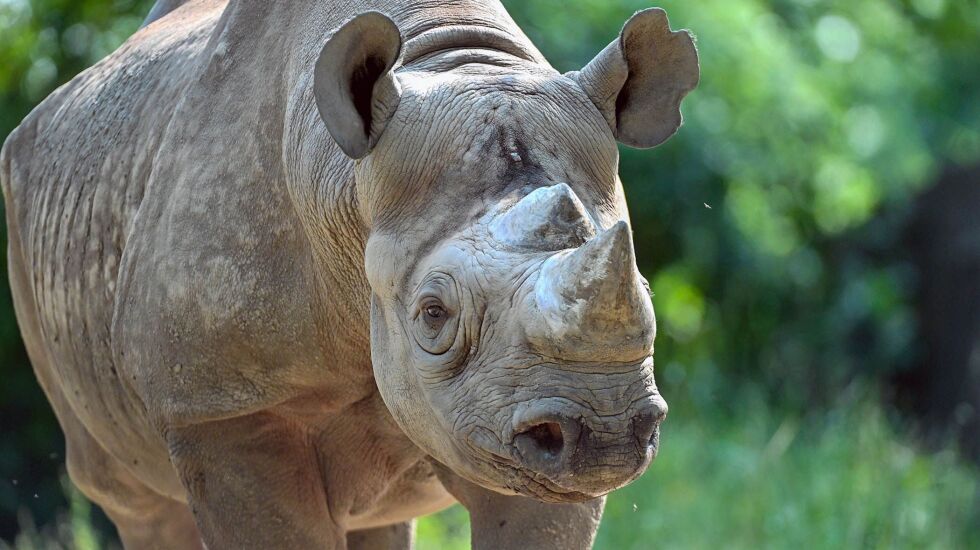
Nakili, an eastern black rhinoceros who for decades lived at Brookfield Zoo, was humanely euthanized Wednesday due to worsening degenerative kidney disease.
The 33-year-old pachyderm was the oldest male eastern black rhino living in an accredited North American zoo and arrived at Brookfield in 1994 when he was 4 years old, Chicago Zoological Society officials said.
“Nakili was a favorite among the animal care staff, volunteers, and zoogoers,” Joan Daniels, the zoo’s senior director of hoofed mammal care and conservation, said in a statement. “He had a great disposition and voluntarily participated in his training and husbandry sessions. He also participated in up-close experiences with zoo guests, who hopefully were inspired by him to care more about his species and the natural world.”
In August, Nakili was diagnosed with kidney disease, and further testing revealed his condition was progressive and nonreversible, officials said. Animal care and veterinary staff changed his diet and administered medications to ease his symptoms.
During a recent checkup Nakili’s blood tests revealed that the disease had progressed to a point that supportive care was no longer feasible, and the decision was made to euthanize him before his comfort and quality of life began declining, officials said.
“The animal care staff fondly recalls that Nakili had the best head tilt when he wanted something and would sometimes vocalize to get your attention,” officials said. “And even though he was close to 3,000 pounds, Nakili was a bit hesitant and needed extra encouragement to try or do something new.”
The eastern black rhino is the most endangered of the three black rhinoceros subspecies, with an estimated population of 740 individuals remaining in Africa, officials said. Its main threat are poachers who kill the animals for their horns, which are used for decoration and medicinal purposes.
“To help advance the care and population of black rhinoceros in professional care for future generations, over the years, staff was able to collect/store Nakili’s semen for genetic banking and for artificial insemination trials,” officials said.
Nakili has one living offspring named Kianga who was born at Brookfield Zoo in 2003 and resides at the Racine Zoo in Wisconsin.
“He definitely leaves a big, lovable hole in the hearts of those who cared for him,” officials said.







